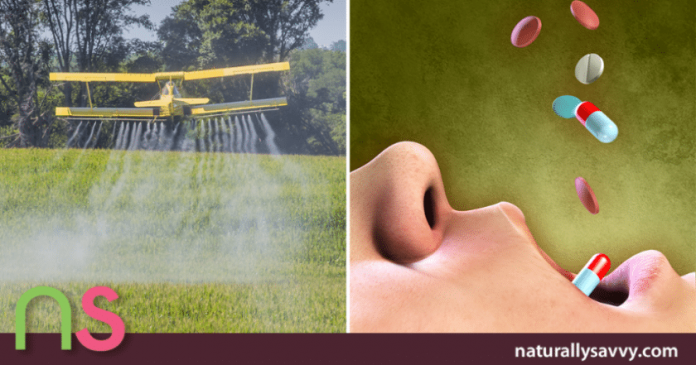
Monsanto has agreed to merge with Bayer, a deal worth a total of $66 billion when Monsanto’s debt is taken into account. The combined company would be the world’s largest seller of both seeds and agrochemicals. If these mega-corporations join forces, the union would form a drug-seed-pesticide-GMO Goliath that controls almost 1/3 of the world’s seed market and almost 1/4 of the pesticide market.
Why merge?
Monsanto, like many businesses in the conventional agricultural sector, is suffering these days under the weight of depressed crop markets and failing conventional practices. Crop prices are tanking and that rapid downturn is affecting all agricultural businesses from fertilizers to farm equipment to seeds and pesticides, and ultimately Monsanto’s revenue. Since Monsanto’s products are under fire in the public spotlight and farmers are receiving the lowest prices in several years, there’s bound to be dramatic changes with these agricultural giants. The combined company will benefit from Monsanto’s leadership in seeds and its recent acquisition of the Climate Corporation, while Bayer’s global crop protection presence may open up new markets for growth.
This merger would combine two companies with a long dark history. To date these companies have shaped what people eat, what drugs we take, how we care for our gardens, how we take care of pests, and how we produce our food. This merger will further the power these companies have over our food, our environment and the pharmaceutical industry. This unfortunate union isn’t a new collaboration for Monsanto and Bayer, as they teamed up early on during the Vietnam War in the development of Agent Orange. Let’s take a look at who these two companies are and how they are similar.
Who is Bayer?
Bayer is a lesser-known company, but as infamous as Monsanto in regards to environmental damage and GMOs. Bayer is responsible for making dyes from coal-tar starting as early as 1863. It then developed into a chemical and drug company famous for introducing heroin as a cough remedy in 1896. Later Bayer introduced aspirin in 1899. The company was a Nazi contractor during World War II and is documented as using forced labor. Today, the company is based in Leverkusen, Germany. They primarily make drugs but they also have a crop science unit, which makes weed and bug killers. The goal for Bayer is to dominate the chemical and drug markets globally.
Who is Monsanto?
I’m sure you’ve probably heard of Monsanto but just in case you haven’t let’s recap some of the things you should know about this company. Monsanto is a multi-billion dollar company that has branches in 100 different countries dominating the global seed market. But before Monsanto monopolized the food and chemical markets, they had a varied history in artificial ingredients, plastics, growth hormones, non-biodegradable materials and even created war weapons.
Read our top 15 things you should know about Monsanto
What’s the problem with this deal?
The deal would be the largest agriculture merger to date. However, it’s not a done deal and there are many problems that could halt the merger. We assume these have been considered, so there likely are dealings being made to forge ahead with the merger. Some potential roadblocks include the following:
- There could be antitrust hurdles.
- Many would argue that this merger would equate to a monopoly.
- A combined Bayer-Monsanto would be the biggest player in an industry with only a three mega-monsters left standing.
- The deal could create massive backlash in Germany since it is illegal to grow genetically engineered foods.
- Genetically modified organisms pose a major problem in the EU as many of the products that Monsanto produces and sells are outlawed in Europe.
- GMO products will likely present an array of issues for Bayer when they take the merger to the European Commission for approval.
- Bayer shareholders are livid. They simply do not trust the company since the announcement of joining with Monsanto – its shares have already fallen a massive 12% since the merger was announced.
The proposed merger between Bayer and Monsanto is now in the hands of regulators and the outcome is uncertain. Until then to avoid these companies choose certified organic foods and natural health alternatives.




